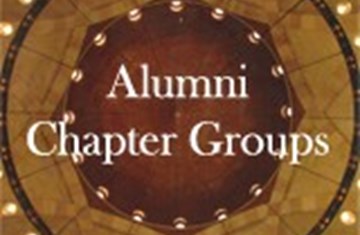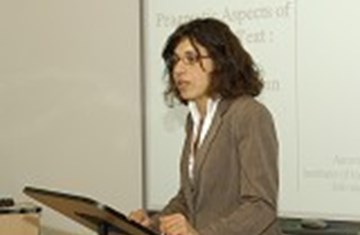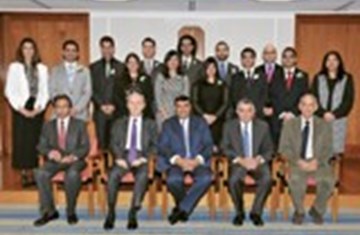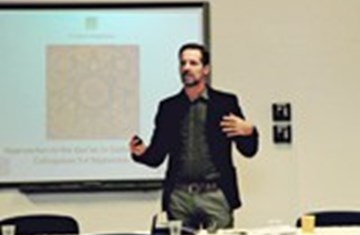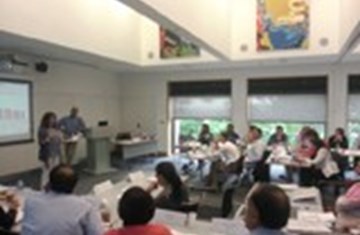IIS Lecture Series on Qur’anic Studies Concludes
The Institute’s Qur’anic Studies unit held the last four lectures of the series: ‘The Meaning of the Word: Lexicology and Tafsir,’ in April and May 2011.
The series of lectures, organised by Dr Stephen Burge, focussed on the relationship between Qur’anic tafsir (exegesis), lexicology (the study of the meanings of words and their semantic relations) and the ways in which different exegetes have approached questions relating to lexicology in the Qur’an.
Prof. Agostino Cilardo (University of Naples) provided a detailed analysis of the language used in complex legal arguments related to Islamic inheritance law, with a paper entitled ‘From Qur’an to Fiqh: Sunni and Shi‘i Tafsir of Inheritance Verses (Al-masa’il al-mulaqqaba)’.
Next, Prof. Kees Versteegh (University of Nijmegen) discussed the relationship between lexicology and tafsir in the early development of exegesis in his paper: ‘In Search of the Meaning of the Text: The Earliest Qur'anic Commentaries.
Prof. Versteegh highlighted that discussion on the meaning of words was central to exegetical projects undertaken by figures such as Muqatil b. Sulayman (d. 150/767), who wrote the earliest exegesis still extant.
In the penultimate lecture, ‘The Qur’an and its Translators’, Prof. Stefan Wild (University of Bonn) took a different approach by looking at the relationship between translation and exegesis in English translations of the Qur’an.
Prof. Wild raised the problem of bias inherent in translations of the Qur’an, and the way in which elements of exegesis come to the fore in translations of the Qur’an.
The series was concluded with a lecture by Prof. Claude Gilliot (University of Aix-en-Provence) who presented a comparative study of the treatment of lexical material in Abu Ja‘far Muhammad b. Jarir al-Tabari (d. 310/923), who was a historian, Shafi‘i jurist and proto-Ashari theologian, and the grammarian, lexicographer and rhetorician al-Wahidi of Nishapur (d. 468/1075).
In his presentation entitled ‘The Use of Lexicography in the Great Qur’anic Commentary of al-Wahidi,’ Prof. Gilliot argued that the historical contexts of the two exegetes had a large part to play in their different perspectives on lexicology and its usage.
The primary aim of the lecture series was to gain an understanding of how exegetes used the meanings and interpretations of individual words to support theological worldviews. The project brought together sixteen scholars from Europe and North America.
Although focussing entirely on lexicology – a subject with a very specific frame of reference – the series has shown that the meanings of words have provided an area of diverse approaches and exegetical uses.

